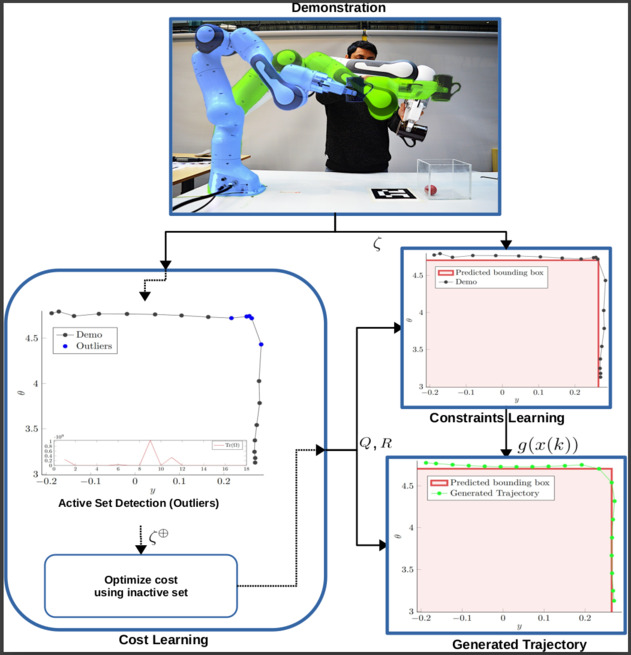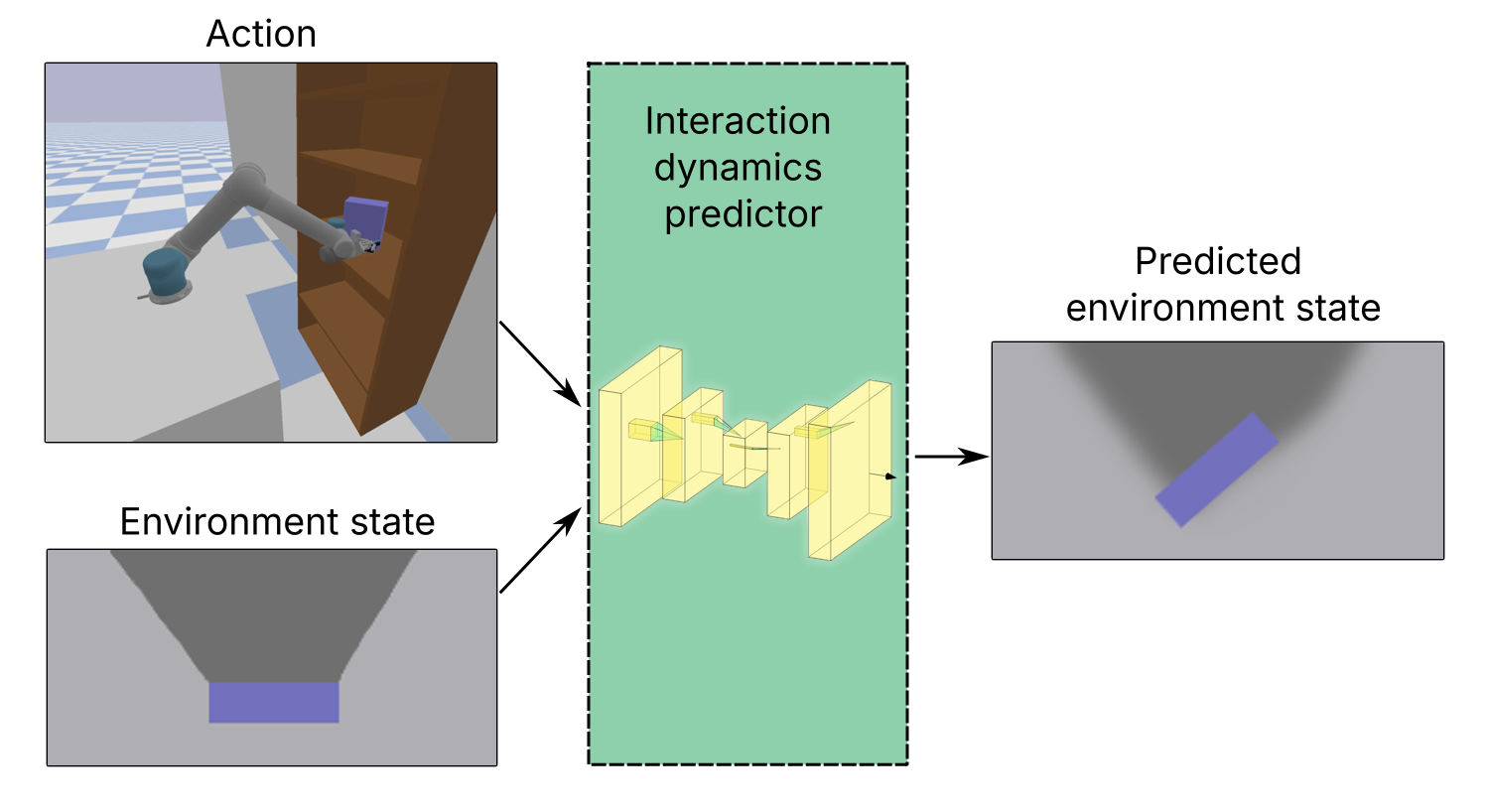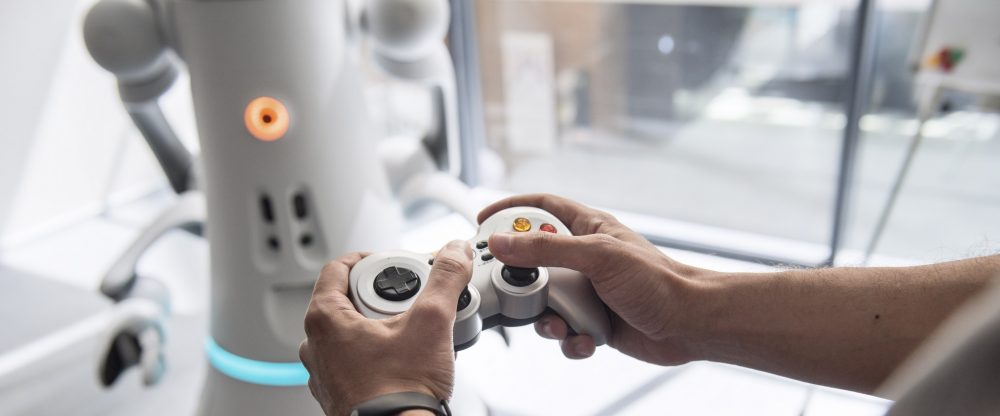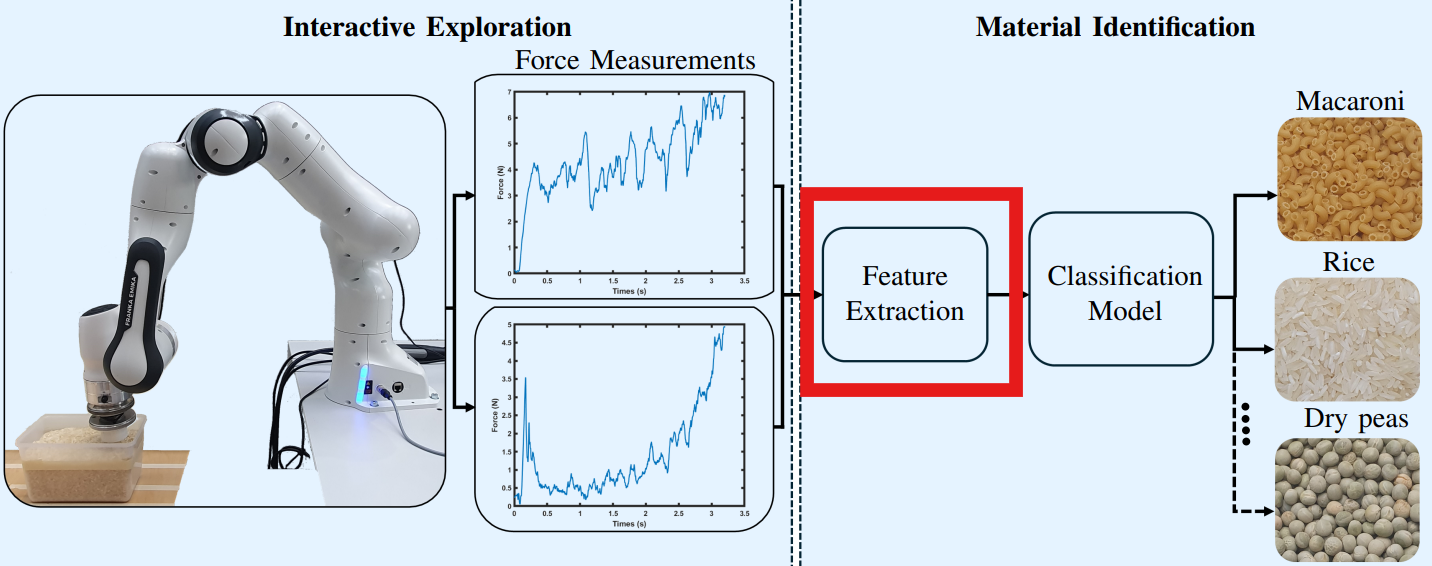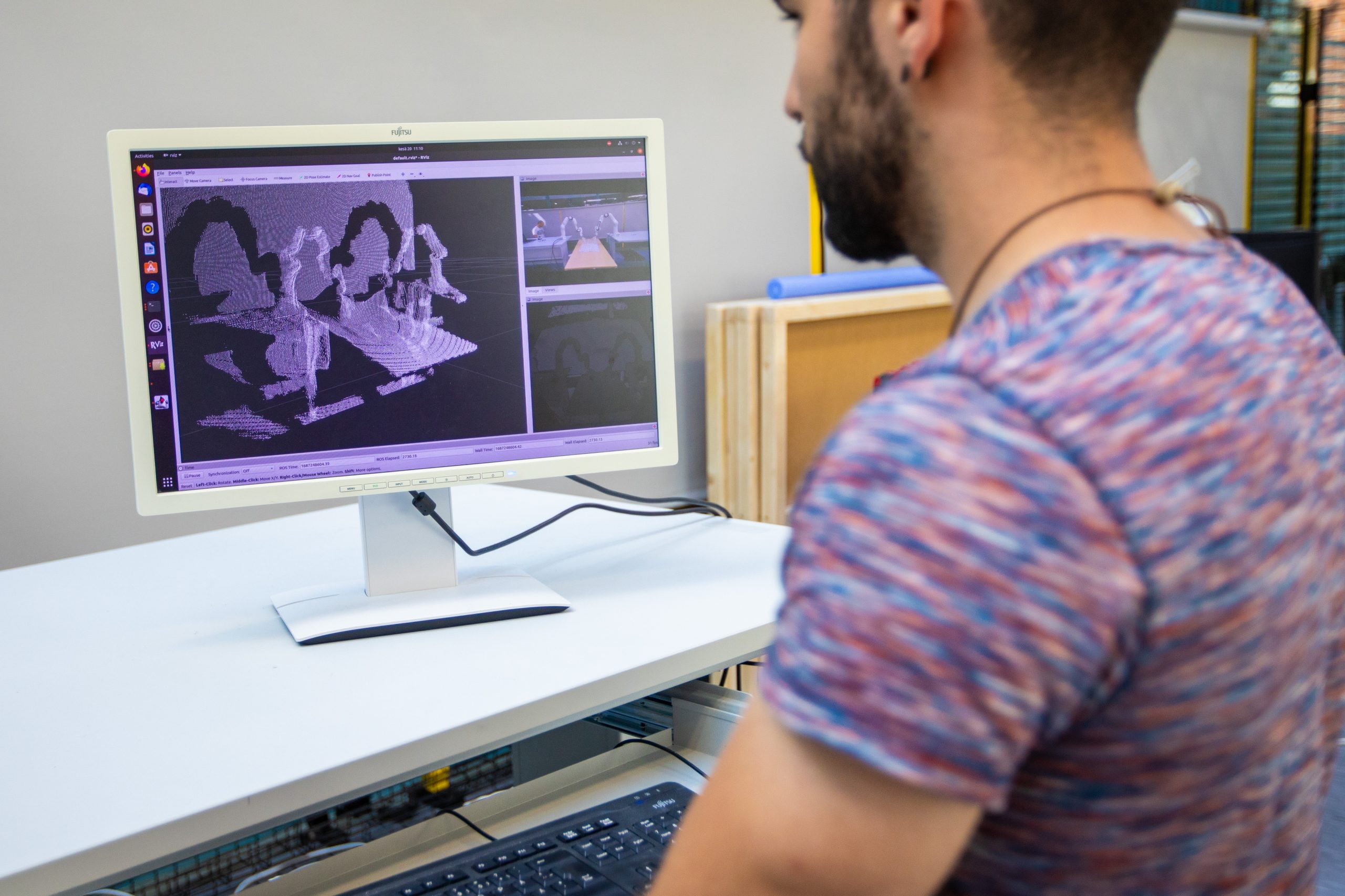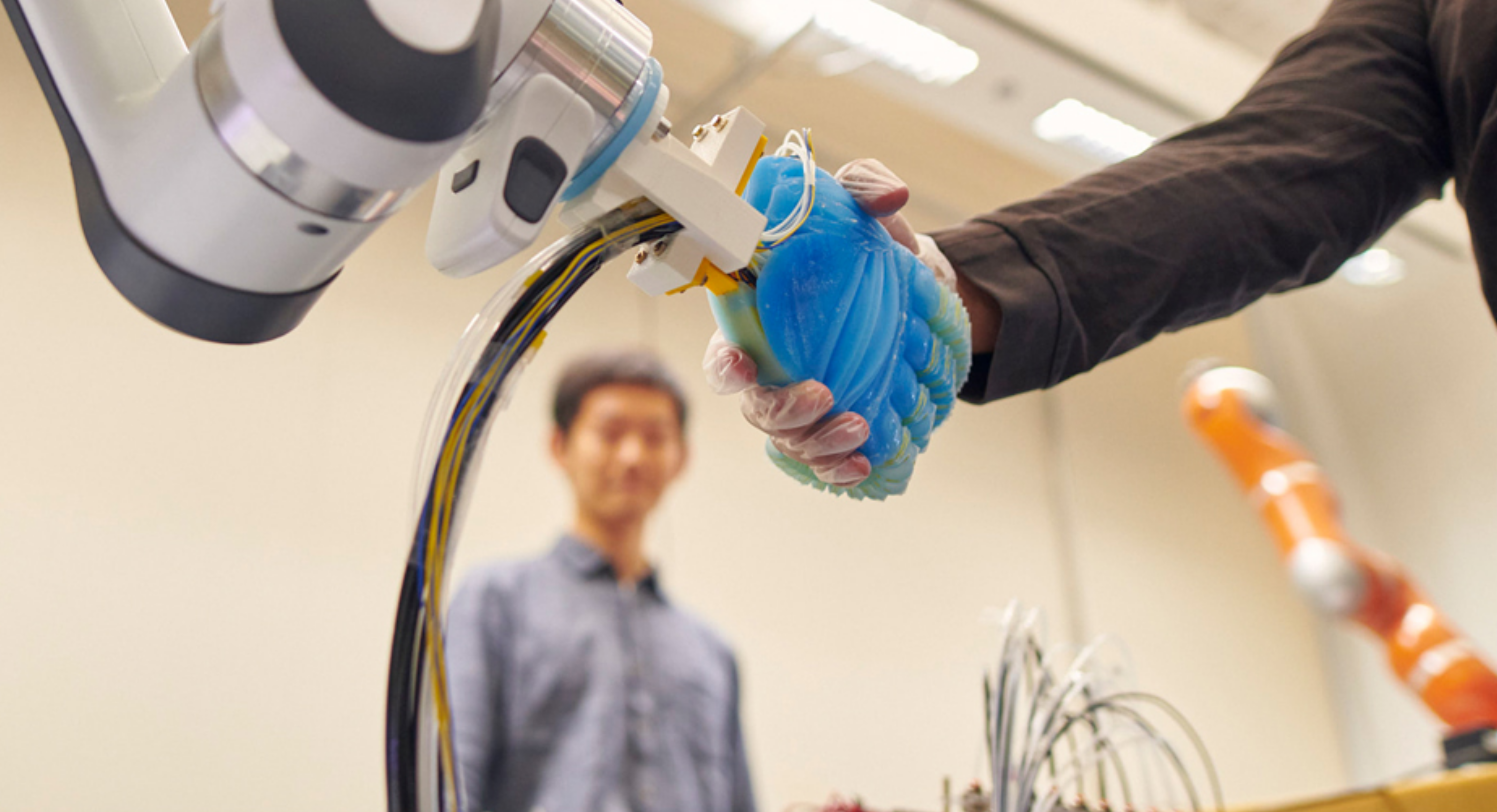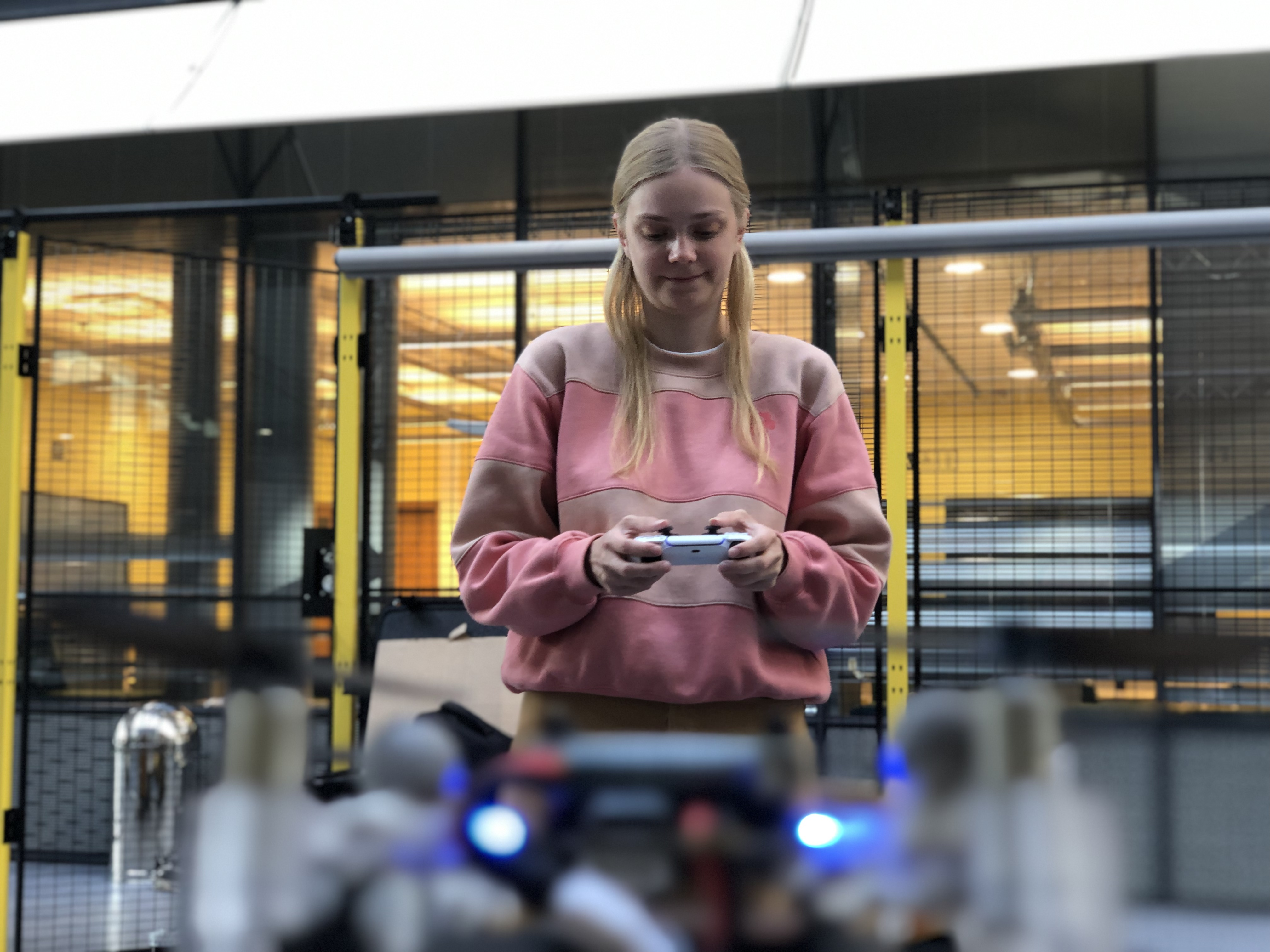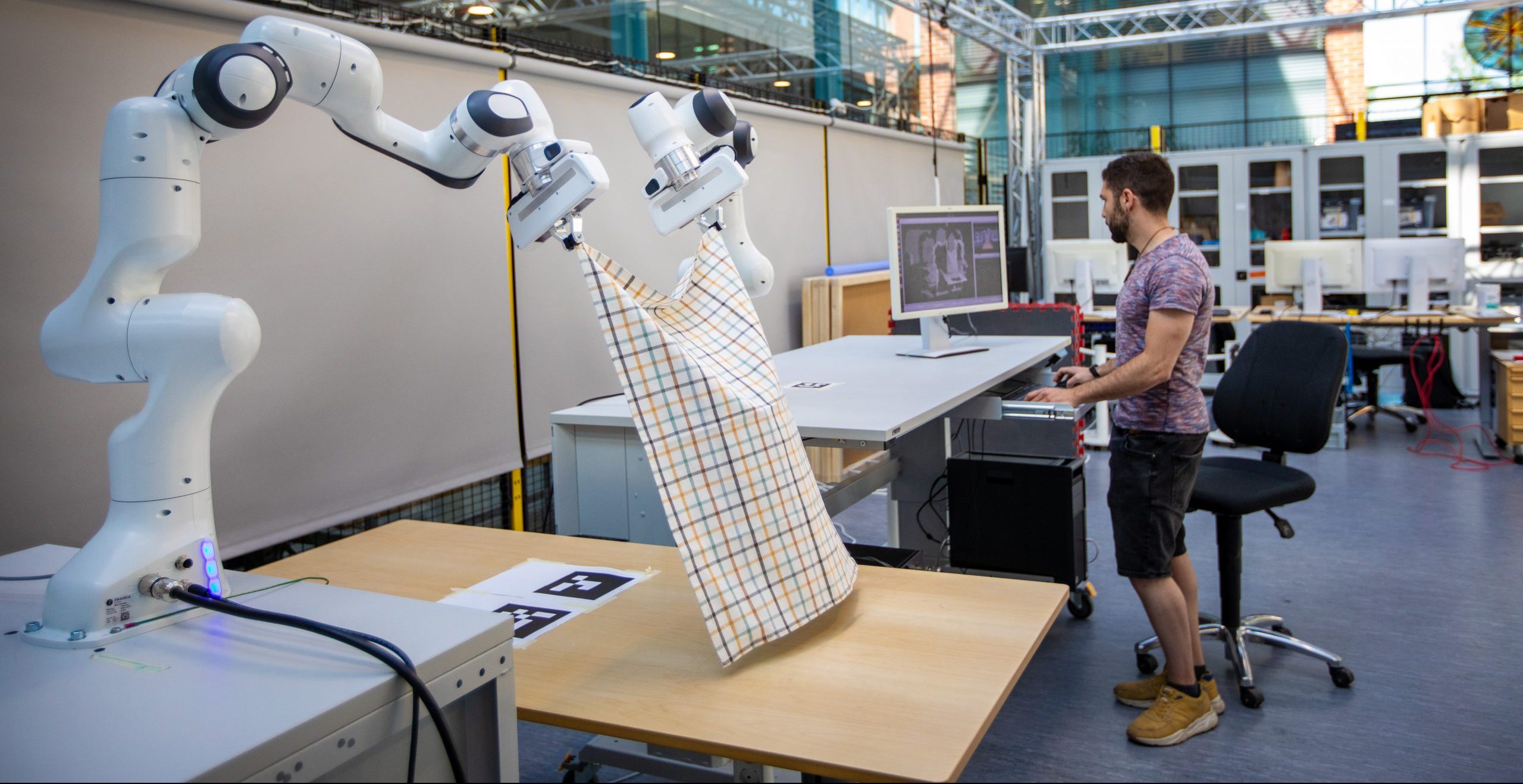Category: Uncategorized
Master Thesis on “Learning From Demonstrations (LfDs) for Robotic Manipulators”
We are currently seeking a motivated and talented master’s student to investigate and improve upon a developed method that learns cost and constraints explicitly as part of their master’s thesis.
Master’s thesis on “Learning interactive environment dynamics for active search”
In this master’s thesis, the main task is to design a method to predict changes in the state of the environment after a push action. The environment consists of constrained, cluttered space containing rigid objects.
Human-in-the-Loop Shared Control with Guaranteed Safety for Teleoperated Robots
In this project, we develop a shared control framework that guarantees safety using control-invariant sets (CISs), which are computed from the robot’s dynamics and an environmental model. The CISs ensure that unsafe human commands are overridden, while safe commands are executed normally.
Interactive Identification of Granular Materials using Force Measurements
To be updated. The code and dataset are available at https://github.com/samhyn/granular_identification
Master’s thesis Topic on Analysis of Tactile Signals
We are currently seeking for a motivated and talented master’s student to work on discriminative filtering and feature extraction for classification of tactile signals.
Intelligent Robotics @ IROS 2024
The Intelligent Robotics Group will be at IROS 2024 with six conference papers and two workshops
Meet us at ICRA 2024!
Learn about our recent work at ICRA 2024. Read more!
See you soon at IROS 2023!
The Intelligent Robotics group will attend to IROS 2023 in Detroit. Read more!
Summer Internships at the Intelligent Robotics Group
Every year the Intelligent Robotics Lab hires summer interns for a multitude of projects, ranging from infrastructure projects to advanced research topics. Two summer interns who recently finished their summer stay in Helsinki in 2023 are Tiia Tikkala and Sergio Hernández, both supervised by Dr. Kevin Sebastian Luck.
Master thesis topics are out
Are you a student interested in working with real robots on a challenging master thesis? Check our the open topics!
